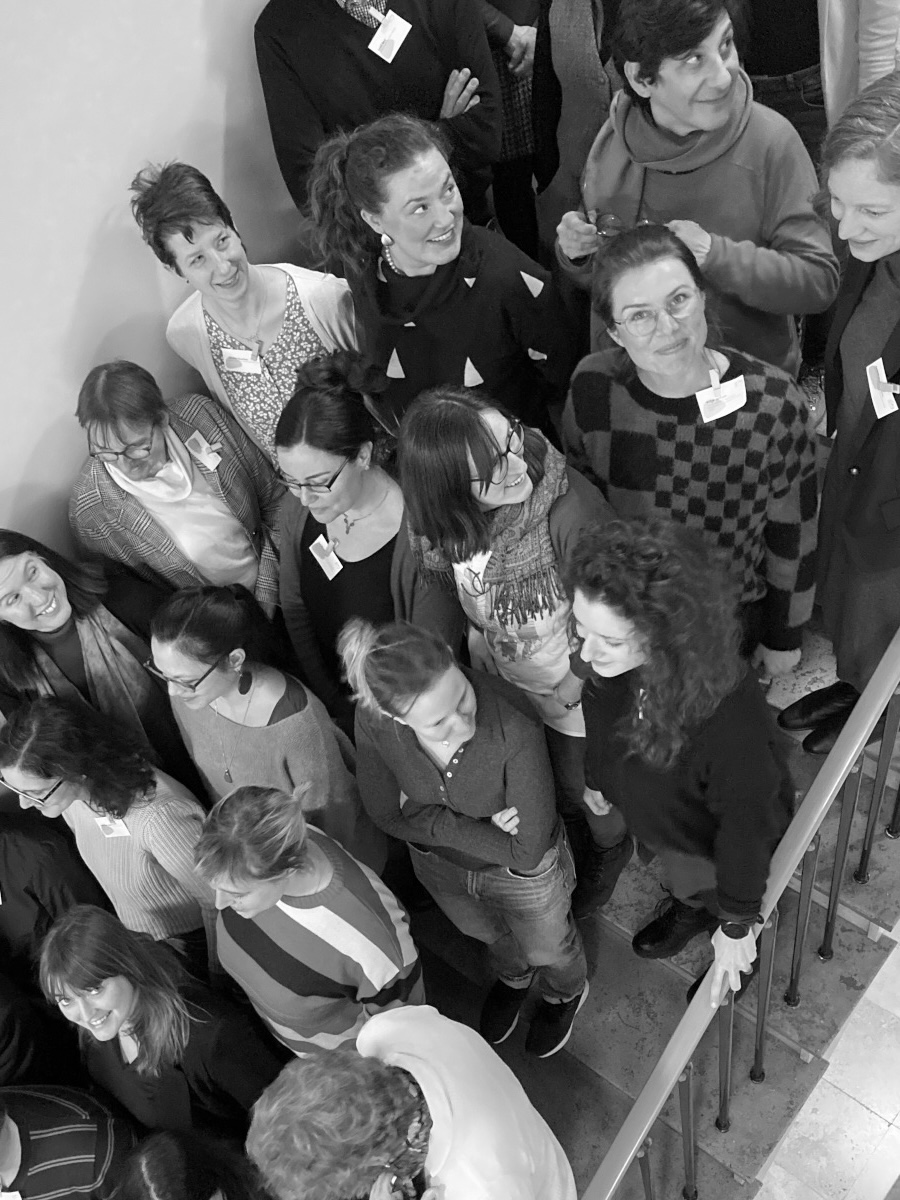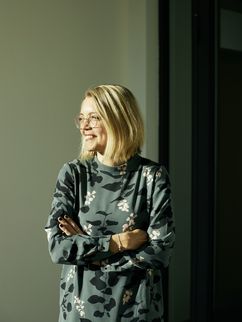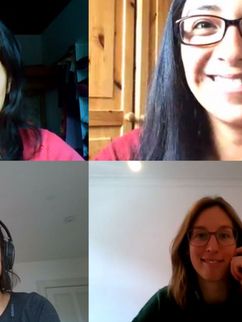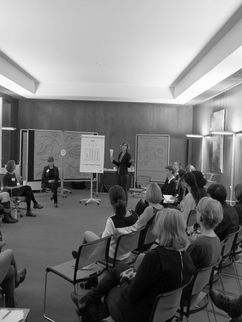MENTORING YEAR 2020/21
Margarethe Kampling & Karoline Stolze
There are still far too few intelligent and well-educated women pursuing careers. Where I work in technology companies, and also in research, I observe that women are underrepresented in leadership positions. For many men, on the other hand, it is much more natural to put their career at the centre of their lives.
Right from the start, I therefore loved the idea of supporting young women as a mentor and motivating them to continue on their path. In my opinion, the promotion of networking among the mentees is particularly important because women often don't take enough advantage of such networks. I also think it's good that the programme is set up over a longer period of more than a year, enough time to enable real development and provide sustainable support.
What I learnt to appreciate about Karoline this year was her open manner and her high level of self-reflection. The trust she placed in me was also a sign of appreciation for me, and it was mutual. In our discussions, we talked about criteria for success and happiness in professional life. I learnt once again how important social factors such as recognition and teamwork are for job satisfaction. In my company, as Managing Director, I am responsible for the figures, and these are also important. But even more important for a company and its success are the employees and their constructive interaction and cooperation. They must receive the recognition they deserve and their team spirit must be encouraged.
I hope that in the future, women will pursue careers just as naturally as men and that a programme like this will no longer be necessary. Today, it is as natural for women to study as it is for men to take care of the household and family. However, when it comes to which of the two has a career, women often still hold back. There is still a long way to go before real equality is achieved.
MARGARETHE KAMPLING is Managing Director of engionic Fiber Optics GmbH.
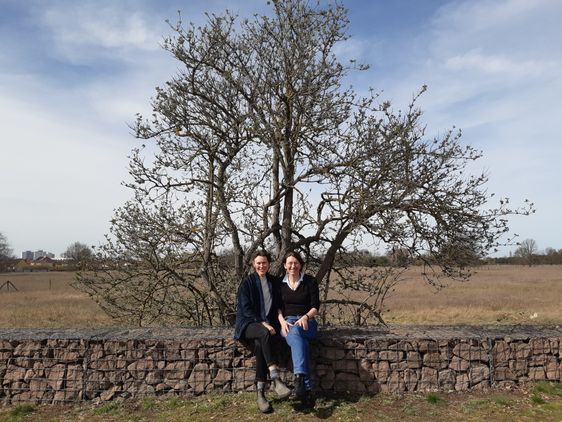
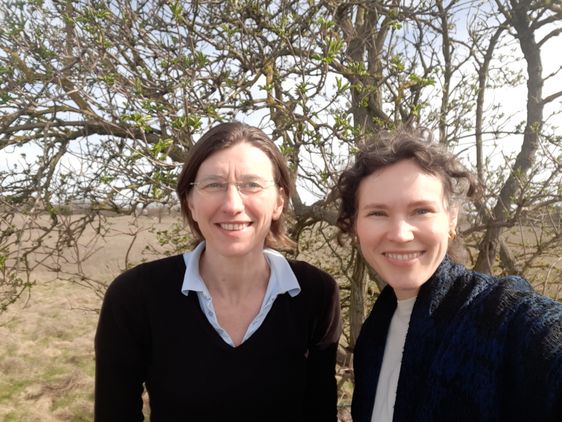
The programme was highly recommended by a colleague. I had just taken over the leadership of a junior research group and hoped to improve my leadership skills and define my career path more clearly. I was particularly interested in questions relating to the training of young scientists and strategies for conflict resolution. I loved the idea of travelling this path together with women from different research fields who are at a similar point in their careers and face very similar challenges. Together we built a network of support, expertise and friendship. The appreciation and understanding that I received from the other mentees was incredibly empowering and is one of the greatest achievements of the programme.
And then there was Margarethe: my mentor, who, with her calm, rather pragmatic manner, always focusses on the essentials without losing sight of the bigger picture. That helps to take the »drama« out of a topic and helps you remain objective. With her bird's eye view, Margarethe helped me to take on other points of view and to better understand or at least accept them. Although she is always busy as the managing director of a tech company, she made time for our meetings and was always immediately focused on the topic in question. Margarethe didn't give me ready-made solutions to my problems or even the »right« answers; she asked me the right questions. This helped me to formulate my wishes, develop clear strategies and define goals.
In addition to the coaching we received in the peer group, some of the workshops resonated particularly with me. »Giving professional feedback« was one of them. I realised how important and helpful it is to give regular feedback on (collaborative) work to your students, but also to colleagues; and at the same time, how rarely you receive such feedback yourself. For example, the »Voice and Body Coaching« seminar was challenging for me. This was about the deliberate use of voice and body language as a convincing means of communication in presentations. As an exercise, we gave short presentations and the trainer and the other mentees then analysed the performance. With a little practice, you could see great progress, even if the first step required some effort.
The programme has sharpened my career prospects. I now know that I want to stay in a research institution and work scientifically. Today, I work as a group leader at the Leibniz Institute for Crystal Growth in Berlin and firmly believe that we should live in a world where gender plays no role in the promotion of talent and skills. However, the reality is not there yet. As long as women face obstacles and inequalities, programmes like this will continue to be important.
KAROLINE STOLZE is a group leader at the Leibniz Institute for Crystal Growth in Berlin.
MENTORING YEAR 2019/20
Nadine Töpfer & Ivo Feussner
After completing my doctorate, I spent several years conducting research abroad, in Israel and then in the UK. In 2019, I returned to Germany. I saw the mentoring programme as a good opportunity to re-establish myself in the German academic landscape and make contacts with people at similar career stages. I also found the range of courses and workshops very interesting and they suited my needs and questions at the time. For example, how do I set up a successful working group? How do I actually apply for a professorship?
I learnt a lot for the future. Perhaps the biggest gain is the wonderful network of motivated, committed and strong women. We still swap ideas regularly. This helps us to categorise our own experiences and expectations and is hugely motivating. The coaching on professorship appointments was also just right for me and supported my application process for my current professorship.
What I appreciate about Ivo, my mentor, is his open, honest and always positive manner. I was open to him right from the start and trusted him. Ivo sometimes read me almost frighteningly well and gave me advice based on this. He never left me in any doubt that my career would go the way I wanted it to. This trust has rubbed off. We now meet up once or twice a year by chance at scientific events and talk about cross-country skiing, for example.
At the moment, I'm very happy where I am. I have a great team and I want to continue to expand and support my team members. Helping these young scientists forge their own paths is one of my goals for the next few years.
NADINE TÖPFER is a professor at the Institute for Plant Sciences at the University of Cologne, and part of the Cluster of Excellence on Plant Sciences (CEPLAS).
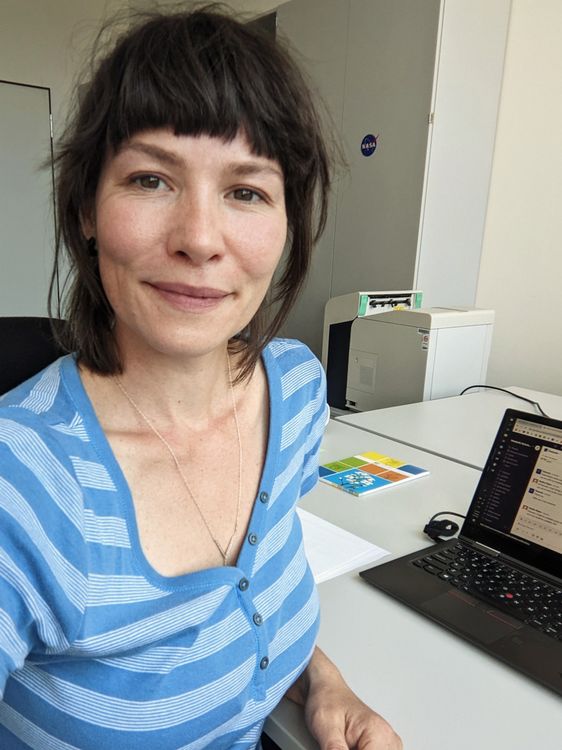
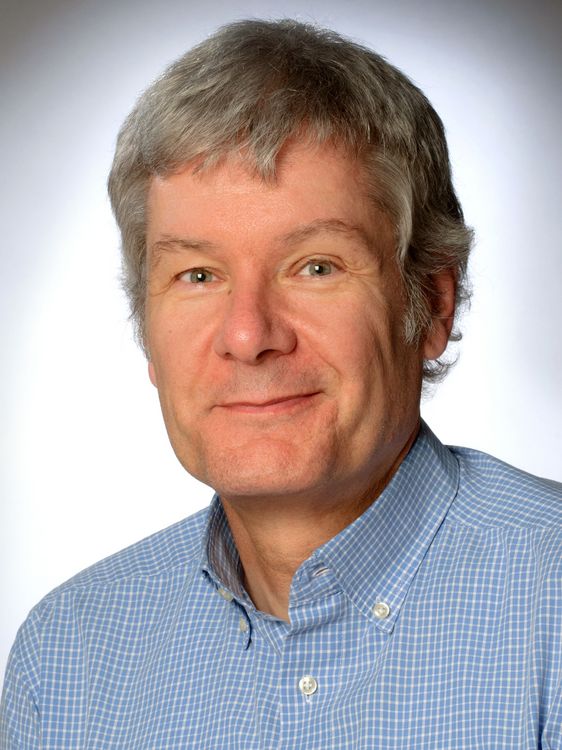
In the 1990s, as a young scientist, I habilitated at a Leibniz institute. Back then, I had a wonderful mentor, to whom I owe a great deal. That's why I've participated in mentoring programmes ever since, to give back at least some of that experience. I have learnt a lot from Nadine and from our conversations. I particularly appreciate her open and approachable manner. The workshops on the mentoring programme were the best I've attended so far and I learned a lot from the trainers – the seminars on communication and leading conversations were particularly helpful for me.
Nevertheless, I hope that one day mentoring programmes like this will no longer be necessary. But there is certainly still a long way to go until then, because there is still a lot to do before scientific career paths become fairer and more transparent, and not just for women. I myself would like to continue to inspire many young and motivated scientists in my field of work and profession for many years to come, to make new discoveries with them or simply to continue our work. All in all, we scientists have a great job and the ability to choose our own research topics is something very special . This is something that makes me happy every single day.
IVO FEUSSNER is a biochemist and Director of the Centre for Molecular Biosciences at the University of Göttingen.
MENTORING YEAR 2022/23
Antje Jantsch & Amelie Wuppermann
One of the greatest strengths of this programme is that it is aimed exclusively at women – this makes it an enriching experience and means it offers a safe space. As everyone is at the same career stage and facing similar problems and decisions, it was particularly valuable to share experiences and help each other in this very sympathetic atmosphere.
The dialogue with my mentor was equally important to me. In the one and a half years I spent with Amelie, I particularly appreciated her openness and approachable, supportive manner. She has constantly given me advice and shared her very personal experiences. Amelie is a source of inspiration. She included me in her professional network and always shared information with me that could be important for me in my professional career. I am incredibly grateful to her for this and I believe that the reason our relationship developed so fruitfully was because we communicated our mutual expectations clearly from the outset.
The Leibniz Mentoring programme has not only helped me in specific situations in my everyday professional life, it is also a sustainable source of personal and professional growth and development. I remember many situations during the group coaching sessions where we mentees mirrored each other and reflected together – and how empowering this feedback was. Even though I sometimes had to leave my comfort zone when reflecting on my actions and goals, I always went home from these workshops motivated and full of energy. I still benefit from that.
ANTJE JANTSCH is an agricultural economist and research associate at the Leibniz Institute of Agricultural Development in Transition Economies (IAMO), where she heads a Leibniz junior research group.
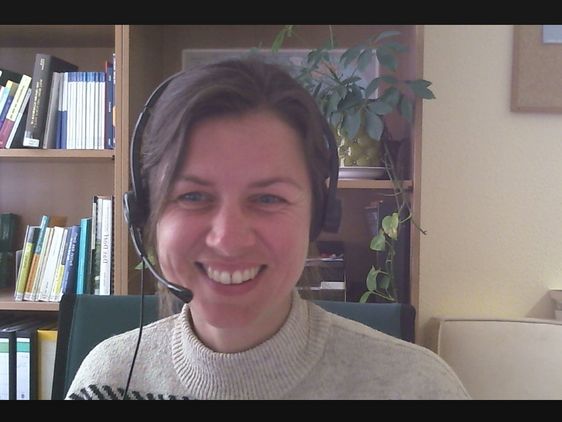
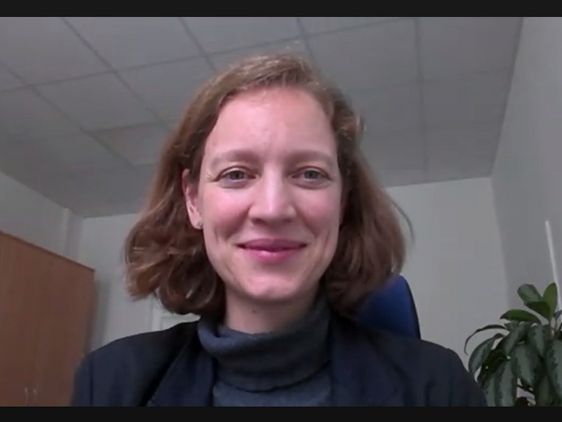
Sharing ideas with and supporting young scientists – especially young female scientists – is very important to me. I see mentoring as an opportunity to accompany a person over a longer period of time in order to pass on my enthusiasm for working in science. Sharing experiences may also help them to overcome dry spells. So when Antje asked me if I would like to become her mentor in the Leibniz Mentoring programme, I didn't hesitate.
In my opinion, one of the main strengths of the programme is that it creates a strong sense of cohesion among the mentees through joint activities and courses. I also found the group meetings between mentees and mentors at the beginning and end of the programme very enriching. The kick-off meeting in particular helps to manage expectations and gave us as a tandem pair the framework and input we needed to make the subsequent months profitable.
Antje is passionate about her research and is also super committed. She is also extremely well organised and uses digital tools, which means that I, as someone who used to use old-school paper to-do lists, was able to learn a lot from her as well. In my opinion, trust is particularly important for a well-functioning tandem – a mutual trust that what is discussed stays in the tandem. Our time on the mentoring programme has only just come to an end and I very much hope that our friendly relationship will continue. And I have one more hope: that a programme like ours will one day no longer be necessary, because in an ideal society all people, regardless of gender, origin, religion or other characteristics, should have the same chances and opportunities to achieve their goals. However, mentoring programmes themselves should continue to exist, even in an ideal society, in order to strengthen exchanges across generations and disciplinary boundaries and thus open up broader perspectives.
AMELIE WUPPERMANN is Professor of Empirical Microeconomics at Martin Luther University Halle-Wittenberg.
MENTORING YEAR 2016/17
Rebecca Wolf & Dörte Schmidt
During the mentoring programme, we had time to reflect on important topics: networks, appearance and leadership tasks, for example. And also: What professional goals do I want to pursue? How and where can I best get my ideas across and develop them further? A good group of people came together and we were able to give each other advice. Some stayed in touch afterwards.
I remember very well how we put into practice what we had learnt in the workshops. In particular, I found the exercises on how to deal with difficult situations in professional relationships very instructive, specifically: how do you prepare for awkward conversations, how do you address problems? The topic of leading conversations in all its facets is still important to me today, especially as communication is always so central to our work. In some exercises and role plays, you had to overcome your own fears. For example, it wasn't easy for me to tell my role-playing counterpart to her face that I thought she had an alcohol problem; fortunately, I haven't had to do this in real life yet.
What does it take to make mentoring a success? A good group, of course. Diversity in terms of experience, age and specialisms can be enriching. I would also think carefully about who I ask as a mentor to ensure that I make the most of the opportunity. My mentor was Dörte Schmidt from Berlin University of the Arts, who was President of the German Musicological Society (Gesellschaft für Musikforschung) at the time. She is very active in the field and in cultural policy and is very well connected. I was always able to contact her and I am still very grateful to her today. Since I've been back in Berlin, Dörte and I have had a lot to do with each other. This summer, for example, we are organising a joint symposium with colleagues at the Humboldt Forum. I found it a sign of great respect that my mentor invited me to her home for our final meeting.
REBECCA WOLF is a musicologist and at the time of her mentoring was head of a research group at the Deutsches Museum in Munich. Today she is Director of the State Institute for Music Research in Berlin.
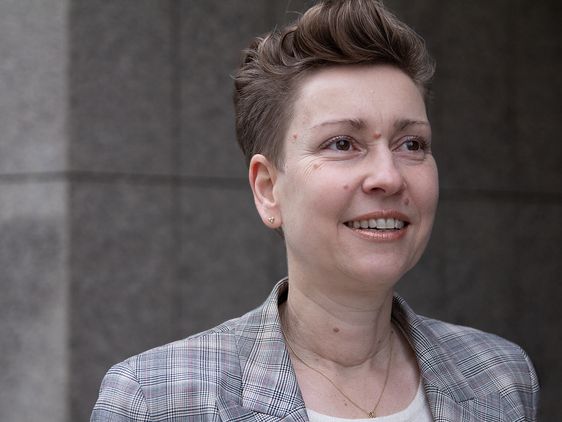
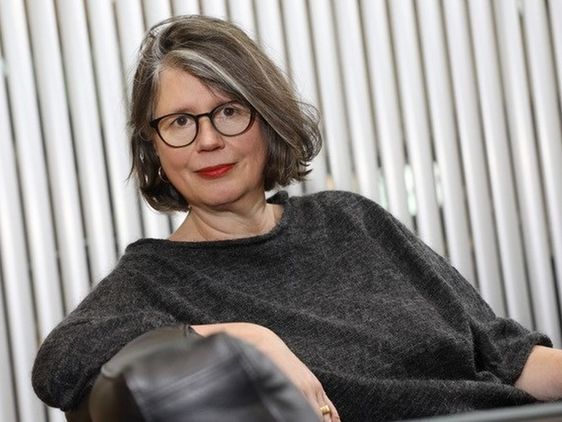
Thanks to my mentee, Rebecca Wolf, I encountered impressive optimism, courage and great curiosity, and obtained insights into research in the museum and an awareness of the technical perspective on music. In addition, in mentoring relationships you naturally always reflect on your own actions. I explain the fact that our relationship has developed so well primarily through our mutual trust and the openness with which we have met. The recipe for success can be summarised in a nutshell: the chemistry has to be right. However, the programme was also challenging for me whenever I had to try to understand what the research system looks like from a different perspective. Mentoring is somehow also about this change of perspective, isn't it? Today, we both work in the same city and so joint activities keep bringing us together again in Berlin. I'm also pleased that I can regularly take my students to Rebecca's museum and show them what research outside the university can look like. Rebecca and I also share an interest in publicising the diversity of music (research). I think that programmes like Leibniz Mentoring will become even more important again in the future. Because it seems to me that the consensus that women should be supported is on the decline again. Although the proportion of women in positions of responsibility is still a long way from where it should be, I keep hearing: »We need a break from this issue«. And the calls for »quality« are also getting louder again – as if women »without quality« would be shortlisted in the first place. On the contrary: it is noticeable that women are still often pushed into »caring« roles, into areas for which they are overqualified. In my view, it is important to continue to encourage women to pursue their genuine research interests.
DÖRTE SCHMIDT is a musicologist and professor at the Berlin University of the Arts.
MENTORING YEAR 2020/21
Annette Menzel & Mina Bizic
I decided to take part in the programme at the time not only because I found the concept so convincing, but also because I wanted to learn for myself how best to support outstanding female researchers, since this is very important to me in my day-to-day research. Due to the COVID-19 pandemic and my busy schedule, I was unfortunately unable to attend the accompanying events in Berlin, which I very much regret. But the mentoring tandem with my mentee Mina Bizic immediately made up for that.
Mina has an incredible passion for excellent research and an enormous strength of will that enables her to carry on undeterred even after setbacks. She is an effective networker and has managed to navigate her family with two children through the pandemic alongside her programme and her job, which I find absolutely admirable. Her current success on the path to a professorship makes me very proud – congratulations, Mina! I’m afraid I can't explain why Mina and I got on so well in tandem. However, in-person meetings are probably not an absolute prerequisite for this, as we – as one of the »Covid cohorts« – had no choice really but to discuss ideas via Zoom and on the phone. In this respect, I am particularly looking forward to the 10th anniversary celebrations of this important mentoring programme, where we will be able to meet in person for the first time.
I was first confronted with the issue of equal opportunities in science in 1993 as the gender equality officer in the Faculty of Forestry. At that time, there was not a single female professor in our faculty. In this respect, we are already many steps further along, but we still haven't reached our goal.
ANNETTE MENZEL is a climate researcher and professor at the Technical University of Munich.
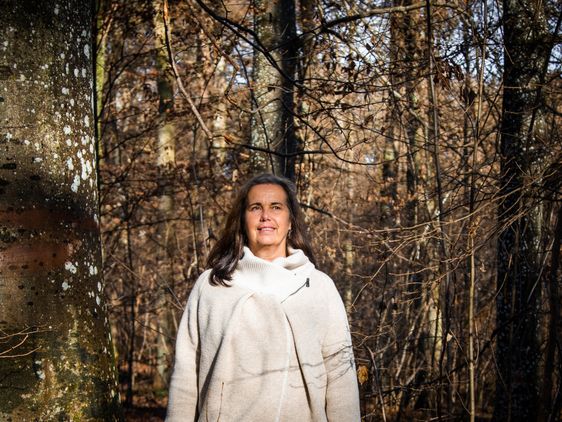
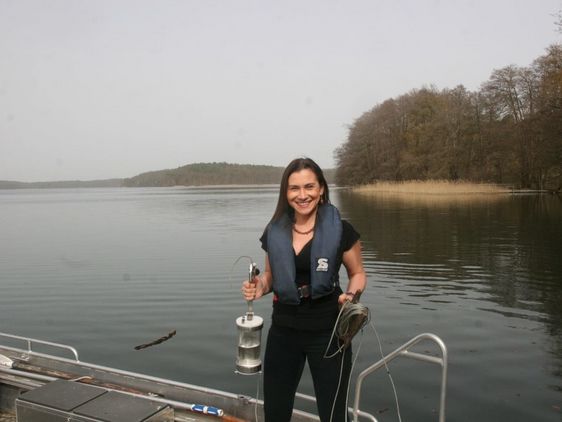
The early career phase in academic research is a daring adventure. Career trajectories are rarely linear, often unpredictable – and always interesting! I’ve always held an ambition to attain a leadership role within an academic field. I felt Leibniz Mentoring was not only an opportunity to equip myself with new skills, expand my networks, and gain the confidence needed to navigate the academic landscape effectively, but also a strategic power move aimed at propelling my career to new heights.
And I was hoping to find for myself an excellent mentor who is where I wanted to be »when I grow up«. My search led me to the impressive and inspiring Prof. Dr Annette Menzel. Throughout our journey, I deeply appreciated her exceptional support. Prof. Menzel actively listened to my concerns, provided thoughtful perspectives, and offered invaluable guidance. Despite her busy schedule, she remained committed and eager to invest in my professional development. Annette left a lasting impact on my personal and professional journey.
A month into the programme, I received an invitation to apply for a W3 professorship position at the Technical University of Berlin. While I had applied for other professorships before and had also had several interviews, I did not consider making the leap from an independent researcher to a W3 professor. When I shared this with Annette, she presented me with a single option without any room for me to consider an alternative response: »You are applying. Be confident in yourself. They would not contact you if you did not fit.« Confiding in Annette during the application and evaluation procedure, she encouraged me to highlight my successes in a manner typically associated with male applicants, which many women may hesitate to employ. This directly highlights the strength and need for a mentoring programme for women by women. Following her advice led me to my current appointment as a professor of environmental microbiomics at TU Berlin.
The Leibniz Mentoring programme was a transformative experience for me. By flawlessly integrating mentorship, training, and networking, it empowers women scientists and nurtures our development within academia. The exciting part comes when you believe the programme has concluded; in reality, it has just begun, for the second time. As an alumna, you join a thriving network — one of the most successful I’ve encountered in my career. We gather in person once a year, but we are available for each other 24/7.
MINA BIZIC is an environmental microbiologist and was a postdoctoral researcher at the Leibniz Institute of Freshwater Ecology and Inland Fisheries. In the coming weeks, she will take up her professorship in environmental microbiomics at TU Berlin.
